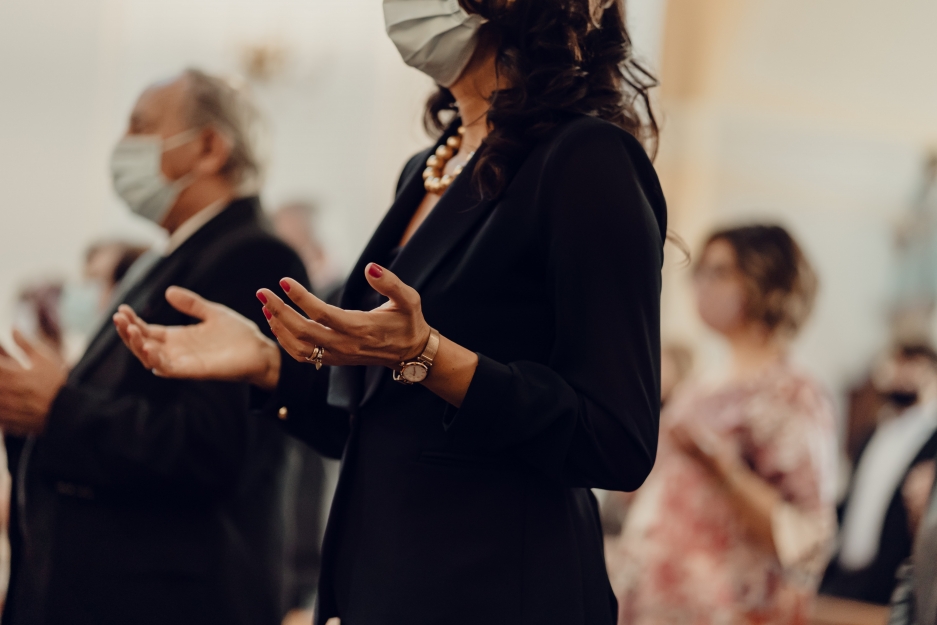New Covid-19 Lockdown Regulations for Churches in Europe and Religious Freedom

In response to the rising number of Covid-19 infections, most European countries have started to announce a new lockdown entering into force in November. The new measures led to a continuing of the discussion about the relevance of the church and the understanding of Freedom of Religion in various countries. After the first lockdown, a number of courts were held discussing the matter of Freedom of Religion, which is reflected in the diversity of new approaches amon European states. France, Belgium, Great Britain and Ireland have banned the celebration of masses, which has stirred up criticism from the churches, demanding proof of the necessity for these measures. Austria, Germany and Spain, as other countries like Poland, did not declare a stop of religious services, arguing that religious freedom is among the essential freedoms to be protected in a liberal democratic society. In these countries the criticism mostly comes from secular societies, claiming that religion is a private issue and should not be given priority over cultural or leisure activities. In Italy the allowance of masses depends on the cities, other European countries allow services although with very strong restrictions.
Germany and Austria have taken very similar measures and announced a partial lockdown. Only retail shops and stores and schools remain open. Churches are not closed, and the celebration of Masses is also still allowed. The allowance of religious events has brought critic from atheistic groups, which state that religion is a private issue.
Source Germany: Zeit, T-Online
Austria: ORF, Vienna
Spain has declared a stage of Emergency in the country, which allows the government to make drastic changes, limiting the free mobilization of the citizens. The current measure is a night curfew. Spain has not prohibited the Masses, but put hygienic restrictions and limited the number of visitors. - Source: Telesur TV, La Noticia
France allows people to leave their homes only for essential work or medical reasons. Schools and churches remain open but Masses are not allowed to take place after the 1st of November. Bishops and several movements have appealed to the Council of State the allowance of communal services of 90 minutes. The Catholic Family Umbrella Organization said that "spiritual support and the need for communal ceremonies for all followers of a religion are indispensable." Source: TheLocal, ORF
In the UK the gastronomy and non-essential retail businesses closed and people are only allowed to leave home for specific reasons. Schools, colleges and nurseries remain open. The Catholic Church has criticized the ban on communal worship, stating that such gatherings have been a great help to the citizen's wellbeing during the pandemic. The places of worship remain closed, unless used for funerals, broadcast, or individual prayer.
“Faith communities have played a vital role in sustaining personal, spiritual and mental health and encouraging vital charitable activities, which support hundreds of thousands of people in all sections of the community, especially the most vulnerable,” - said the Bishops Nichol and McMahon.
“For people in church and other religious communities it seems a very unfair restriction – churches have put a great deal of effort into coronavirus measures, and they are much safer than other settings which are still allowed to be open like secondary schools.” - John Stevens, national director of The Fellowship of Independent Evangelical Churches.
Source: Premier Christian News, Wales Online
In Italy, a night curfew has been declared starting at 6 p.m. Hobby and entertainment activities are closed, but museums remain open. Weddings, baptisms and funeral gatherings are banned, as well as all events. The celebration of Masses is still allowed in some cities, in others not, according to the emergency of the infections. - Source: Crux Now, Reopen Europa Italy
In Iceland and Holland, it is allowed just twenty people to attend Sunday Mass, following the hygienic prescriptions. Poland is a country that didn't put a ban on the religious services in either Lockdown. Sources: Crux Now, Reopen Europa Poland
Debate on Freedom of Religion:
Most countries have allowed the authority of the Church to put their own regulations and make the decisions of their gatherings, or have only installed restrictions on the number and form of the gatherings, without banning the services.
The European Center for Law and Justice writes: “...regarding the conduct of religious ceremonies, the general and absolute prohibition of religious ceremonies seriously infringes on religious freedom and often becomes discriminatory with regard to other gatherings, authorized despite the health situation.”
This position is backed by the Prime Minister of Germany, Angela Merkel, who said that freedom of religion is a fundamental right, after the Court Ruling regarding the ban of religious gatherings in the first Lockdown. Austrian the Minister Susanne Raab, also expressed the same view of freedom of religion as fundamental right.
Soure: European Center for Law and Justice
Symbolic Foto by Gabriella Clare Marino on Unsplash